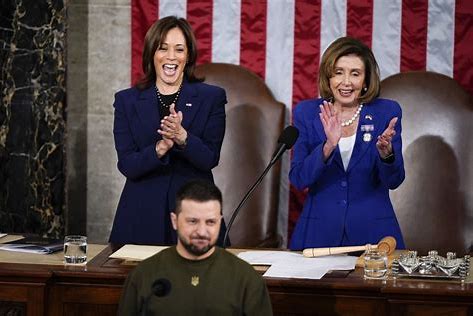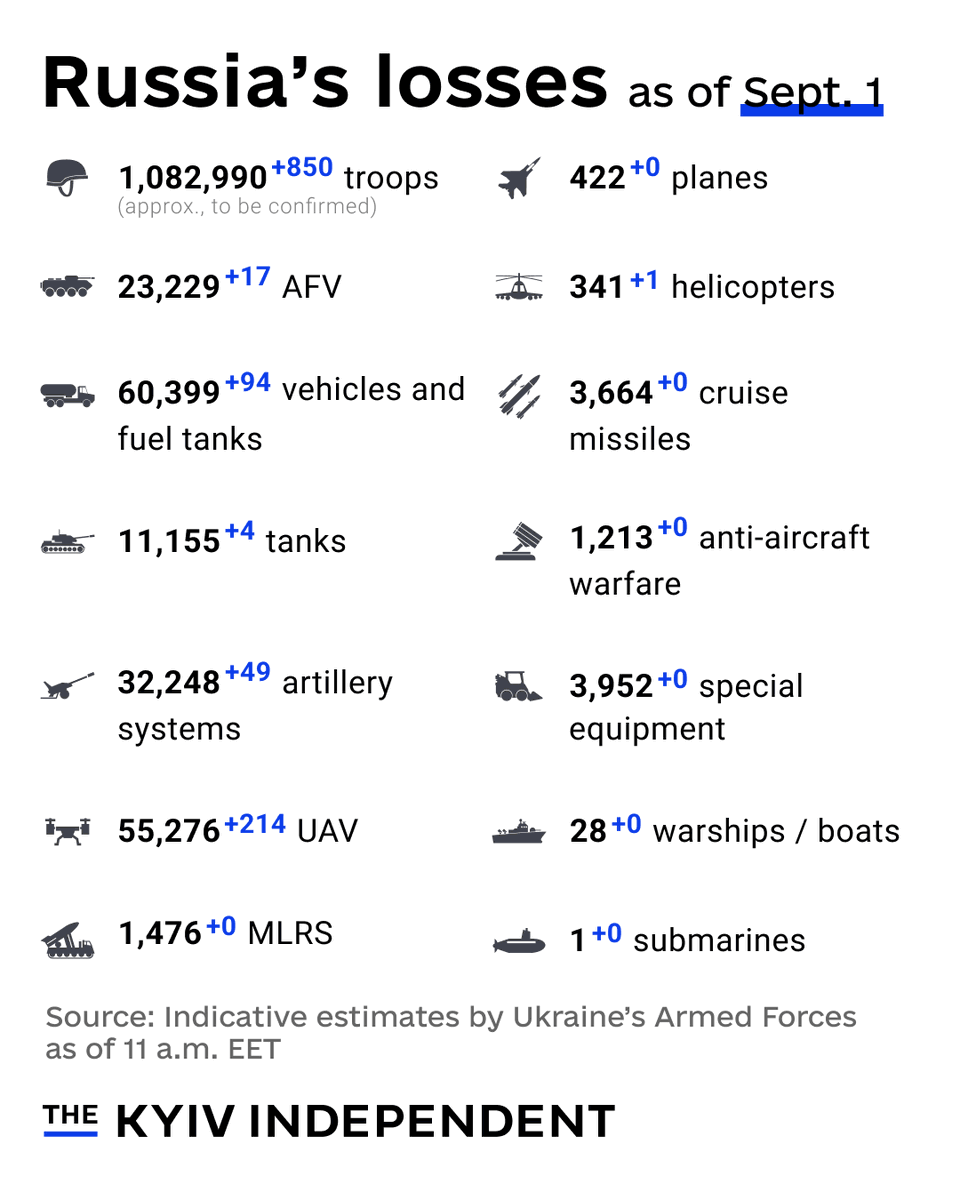
Posted on 02/24/2024 5:59:01 AM PST by SpeedyInTexas
“Ukrainian drone strike on Russian refinery in Krasnodar”
Krasnodar is (was?) Russia’s oldest refinery.
Very realistic appraisal
The oil market is swimming in so much supply, that analysts are projecting $50 Brent, and suppliers having to cut back production next year.
Conditions are set, to force those production cuts on Russia, without market prices having to rise too high. That is what all the new Ukrainian long range strike weapons are for.
Bone-Crushing.
OilPrice.com (31 Aug):
Wall Street Forecasts Oil in the $50s Next Year
“The market consensus appears to be that the strong summer demand is at its peak, and come the fourth quarter, global oil consumption will slow, and rising supply will overwhelm the market.
Growing supply from OPEC+ and higher output from South America will tip the market balance into oversupply toward the end of the year, analysts say.
Despite geopolitical risks, Wall Street banks have lowered their oil price forecasts for later this year and the first quarter of 2026, expecting the glut to depress prices...
...The glut will diminish by the third quarter of 2026, the banks reckon, as excess supply shocks are absorbed during next summer’s peak demand period.
But banks, analysts, and market participants expect oil supply to outstrip demand over the next six months, putting additional downward pressure on prices...
...The U.S. Energy Information Administration (EIA) is even more bearish than major banks in oil price projections.
The EIA expects in its latest Short-Term Energy Outlook (STEO) Brent to slump in the coming months, falling from $71 per barrel in July to average just $58 in the fourth quarter of 2025 and around $50 per barrel in early 2026...
...Due to the OPEC+ supply hikes, global oil inventory builds will average more than 2 million barrels per day (bpd) in late 2025 and early 2026, which is 800,000 bpd more than in last month’s STEO.
“Low oil prices in early 2026 will lead to a reduction in supply by both OPEC+ and some non-OPEC producers, which we expect will help moderate inventory builds later in 2026,” the EIA said.”
The Kremlin is pursuing a multi-pronged informational effort aimed at deterring Western support for Ukraine and undermining European participation in the peace process. The Kremlin has recently been intensifying three rhetorical lines aimed at influencing Western decision-making in the Kremlin's favor: accusing European states of prolonging the war in Ukraine, levying nuclear threats against Western states, and claiming that Russian victory in Ukraine is inevitable. Kremlin officials, most notably Kremlin Spokesperson Dmitry Peskov and CEO of the Russian Direct Investment Fund (RDIF) Kirill Dmitriev, implied that European states seek to prolong the war in Ukraine in an effort to reinject this long-held Russian narrative back into the Western information space to undermine US trust in European governments.[1] The Kremlin often leverages Dmitriev to advocate for Russia's interests in the West, particularly involving the peace process in Ukraine and sanctions, on English-language platforms and media outlets.[2] Russian Security Council Chairperson Dmitry Medvedev criticized French President Emmanuel Macron and German Chancellor Friedrich Merz on his English-language X (formerly Twitter) account on August 31, regarding France's and Germany's involvement in US efforts to end the war in Ukraine.[3] Medvedev claimed that Merz and Macron have “forgotten the lessons” of the Second World War and that “things could end up like they did in 1945 – [Macron and Merz] too may end up being identified by their teeth.” Medvedev is evoking the memory of US atomic bombs to threaten France and Germany for supporting Ukraine in the peace process. Medvedev also claimed that Russian advances are “bad news” for Macron and Merz. These various rhetorical lines seek to bolster the Russian Ministry of Defense (MoD)’s recently intensified effort to falsely portray Russian victory in Ukraine as inevitable.[4] The MoD attempted to use large amounts of qualitative data to make claims about Russian advances – data and claims which ISW assesses are inflated.
Russian milbloggers criticized the Russian Ministry of Defense (MoD) for exaggerating its battlefield successes. Russian milbloggers heavily criticized Russian Chief of the General Staff Army General Valery Gerasimov’s August 30 claims that Russian forces seized 3,500 square kilometers of territory and 149 settlements since March 2025 and rejected Gerasimov’s claim that Russian forces have seized half of Kupyansk.[5] The milbloggers characterized Gerasimov’s figures as a “very big exaggeration” and asked which elements of the Russian military command structure are feeding false reports to the Russian high command. ISW has observed evidence to assess that Russian forces had gained only roughly 2,346 square kilometers of Ukrainian territory and seized 130 settlements between March 1 and August 30.[6]
The Kremlin is intensifying these information efforts because its territorial gains remain disproportionately limited and slow relative to the high losses incurred. The Ukrainian General Staff reported on August 30 that Russian forces incurred 210,000 personnel casualties in Kharkiv, Luhansk, and Donetsk oblasts from January to August 2025, an average of 26,250 casualties per month.[7] The Ukrainian General Staff reported that Russian forces suffered a total of 290,000 personnel casualties throughout the entire theater from January to August 2025, an average of 36,250 casualties per month. Russian opposition outlets Meduza and Mediazona reported on August 29 that data from the Russian Register of Inheritance Cases (RND) suggests that at least 93,000 Russian military personnel died in 2024 — almost twice as many as in 2023 (about 50,000), and estimated using a predictive model that at least 56,000 Russian soldiers have died since the start of 2025.[8] Russia's gains have been largely gradual and creeping for many months, and Russia's rate of advance is incredibly slow under the norms of modern mechanized warfare.[9] Any assessment of Russia's battlefield performance and strength must examine both the tempo of advance and the resulting losses to make those gains.
The Russian-led Collective Security Treaty Organization (CSTO) began its annual military exercises in Belarus on August 31. The Belarusian Ministry of Defense (MoD) announced the start of the “Interaction-2025,” “Search-2025,” and “Echelon-2025” exercises at the Lepelsky training ground in Vitebsk, Belarus.[73] Forces from Kyrgyzstan, Kazakhstan, Russia, Tajikistan, and Belarus are participating in the exercises.[74] The exercises will continue until September 6 and reportedly include more than 2,000 military personnel; 450 pieces of weapons and equipment, including nine aircraft and helicopters; and over 70 drones.[75] Belarusian Chief of the General Staff Major General Pavel Muraveiko stated on August 31 that the ongoing CSTO multilateral exercises and the upcoming Zapad-2025 bilateral Russian-Belarusian military exercises will plan and practice the use of nuclear weapons, including tactical nuclear weapons.[76]
https://www.understandingwar.org/backgrounder/russian-offensive-campaign-assessment-august-31-2025
The coming days are extremely important for strengthening the Russian-Chinese partnership. Vladimir Putin is on a visit to China, there are many meetings, a lot of work. Can the SCO summit be called historic? In part, yes. But today we are talking about something else.
There are three important points about the talks between Putin and Xi Jinping.
First, the partnership between Russia and China is much more important for the Kremlin than attempts to build friendship with the United States. “China is building an economically strong empire, and the Americans are weakening. There is no clarity with Trump at all,” a source in the AP said. The interlocutor stressed that it is important for Russia to show its role as a mediator in the dialogue between Beijing and Washington. Although both sides still prefer bilateral contacts.
Secondly, negotiations with the American side have reached an impasse. Russia does not intend to stop the NWO [war in Ukraine] until complete victory is achieved. And during this visit, the president needs to convince the Chinese leader to continue further cooperation. In particular, the supply of technology and important components is vital for the war. For sure, Vladimir Vladimirovich will succeed.
Thirdly, it is very important to show not only the unity of partners, but also our key role in the triangle - Russia, India, China. India has suffered from short-sighted policies and the introduction of secondary duties by the United States. It is important to emphasize the need for strategic partnership with all key capitals as opposed to the United States. Many people think that China is the key in this triangle, but without our energy resources, Beijing would have to look for an alternative. And it would be significantly more expensive.
Parubii, 54, was shot dead in Lviv on Aug. 30 by an assailant disguised as a courier, prompting a nationwide manhunt. During a press briefing in Lviv, police officials said that Parubii was shot at eight times with a short-barreled firearm. Seven shell casings were found at the crime scene.
“The crime was carefully prepared: the attacker studied the victim's movements, mapped out the route, and planned the escape,” Klymenko added. “Once again, police officers and employees of the Security Service of Ukraine have demonstrated a high level of professionalism. Within 24 hours of the murder, they were already on the direct trail of the shooter, and within 36 hours — they detained him. More details will be provided later by the police.”

Disclaimer: Opinions posted on Free Republic are those of the individual posters and do not necessarily represent the opinion of Free Republic or its management. All materials posted herein are protected by copyright law and the exemption for fair use of copyrighted works.